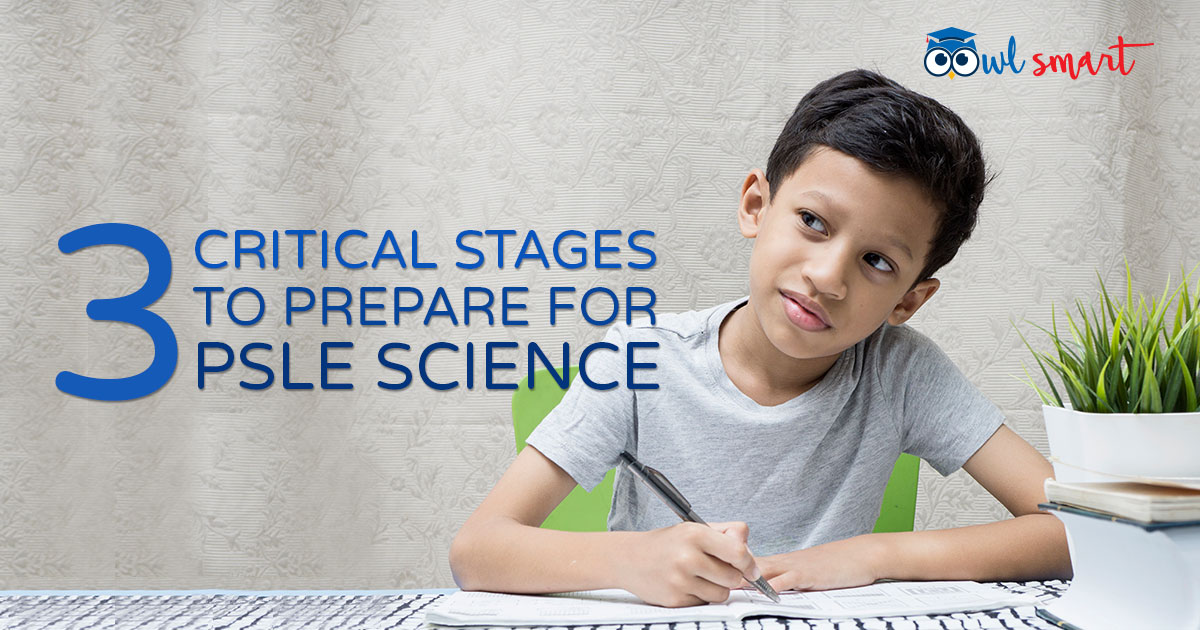
Have you heard of the proverb "Give a man a fish and you feed him for a day; teach a man to fish and you feed him for a lifetime"?
How can you apply this proverb in the learning of Science or in learning generally?
What if I rephrase this proverb as “Show a pupil the solutions and you help him for a day only; teach him how to think and you help him for a lifetime”?
I remember that when I was a beginning teacher, sometimes I made the mistakes of “giving a man a fish” too.
There are different reasons why tutors, parents and even teachers made this common mistake of spoon-feeding a learner:
There is not enough time to teach or complete the syllabus, fatigue, disruptive or unmotivated learners, lack of patience in teaching your own child, etc, the list goes on.
It does not help that people nowadays want instant results and gratifications.
Do you have patience to stop, think and walk through the steps in analysing a challenging question?
Do you only wait for your tutor or teachers to provide you answers most of the time?
It is important for you to learn or adopt an approach to analyse problems and have enough time to “struggle” in the midst of solving a problem.
It is usually the struggling part that produces real and deeper understanding of concepts.

Having said that, it is not easy to “struggle” alone. To start off, a parent or tutor can provide partial solution and provide contextual clues in leading the learner step-by-step along the way till the final answer is derived.
As the learner progresses, give less hints along the way till the learner is more independent.
In the learning of Math, there is the STAR approach to help pupils in analysing problem sums and identifying contextual clues.
When it comes to Science, there are different approaches like RULE and “Begin-End” Answering Technique (Refer to How to Score for Explanatory Questions in PSLE Science and Useful Techniques to Tackle PSLE Science) to help pupils in tackling a question in a systematic way too.
There is less than 1 month away from PSLE. You are running the last lap. Are you ready for it? If not, what else should you do to prepare for PSLE Science?
Before I answer this question, you need to know at which stage of learning you are at currently. Basically, there are 3 stages.
Stage 1 – Conceptual
Are you familiar with or understand the fundamental concepts learnt in each topic?
If you are constantly getting lower 30 plus and below for Booklet A, do revisit concepts learnt from P3 to P6. You are likely to be at this stage.
The marks scored for Booklet A is a good indication of your learning stage as you need mainly good understanding of concepts with some process skills to excel in this section.
You should prepare a study schedule and plan all the topics that you have to revise in the remaining weeks before exam comes.
You need to practise more on Science Paper Booklet A rather than Booklet B. It is likely that you are scoring a single digit for Booklet B and it does not help drilling continuously in Booklet B when you are not familiar with basic concepts.

Fill-in-blanks notes with key concepts and mindmaps would be useful at this juncture for revision of Scientific concepts.
For stronger reinforcement of concepts, many students use OwlSmart which has a large database of over 2200 PSLE Science questions which can be filtered according to topics and level of difficulty. Concise explanations on key concepts are provided for each question too. It is important to clear any misconceptions that you might have at this stage.
Stage 2 – Precision
This stage is where you learn to apply concepts to common examples and refine your answering techniques.
If you are getting around 40 plus and above for Science Paper Booklet A, you are probably at this stage.
You can spend around the same amount of time in practising for Booklet A and B. Come up with a study schedule too. Plan your time wisely.

Integrate your concepts learnt, process skills and answering techniques in tackling a Science question. Learn to pick out contextual clues given.
Learn to be thorough and precise in the way you present your answers when it comes to open-ended questions (Refer to How to Score for Explanatory Questions in PSLE Science).
OwlSmart will be running a PSLE Intensive Revision Workshop during the September holidays. In this workshop, I will be sharing with you a 3-pronged approach to tackle Science questions using contextual clues, process skills and answering techniques. Do sign up early if you need help.
Stage 3 – Explorer
This stage is where you already have the skills and answering techniques to apply concepts to unknown situations in a wider variety of context.
You are constantly getting a “A” grade for Science and you are probably gunning for A*. You are consistently getting around 50 marks for Booklet A too.
What you need to do now is to expose yourself to a wide variety of open-ended questions. It would be best to do as many practice papers as possible from different schools.

A possible source would be online free test papers or hardcopies of exam papers from different schools.
Try to use examples in daily lives to discuss about how scientific concepts can be applied to increase exposure too.
Conclusion
In short, it is important to have enough time to “struggle” through questions. Adopt an approach to analyse a question in a step-by-step manner before coming up with the explanations or answers.
| + | Understanding and Application of Concepts |
| + | Process Skills |
| + | Answering Techniques |
| + | Exposure to wide variety of questions |
| = | Success in PSLE Science |
About the Author
Teacher Zen has over a decade of experience in teaching upper primary Math and Science in local schools. He has a post-graduate diploma in education from NIE and has a wealth of experience in marking PSLE Science and Math papers. When not teaching or working on OwlSmart, he enjoys watching soccer and supports Liverpool football team.



